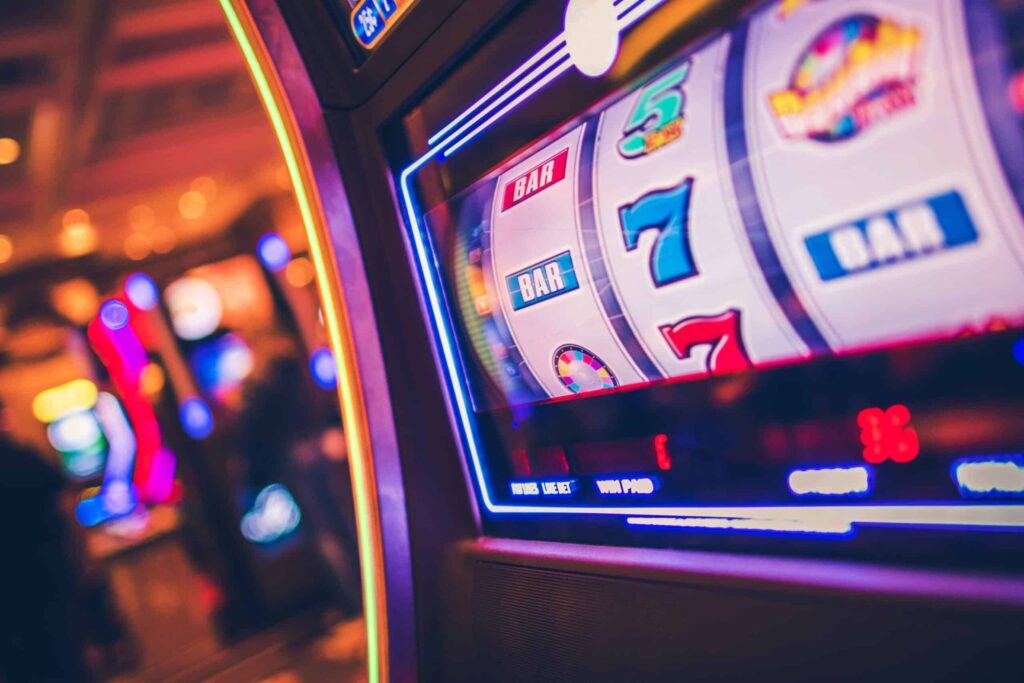The Illusion of Control
Slot machines entice players with flashing lights, colorful graphics, and enticing sounds, creating an illusion of control amidst randomness. This illusion leads players to believe they can influence the outcome of each spin, despite the reality of predetermined results 90jili governed by complex algorithms. The allure of potentially winning big keeps players hooked, fueling the cycle of addiction and financial loss.
The Psychology of Loss Aversion
Psychological principles, such as loss aversion, play a significant role in the allure of slot machines. Loss aversion, the tendency for individuals to prefer avoiding losses over acquiring equivalent gains, keeps players engaged even as they continue to lose money. The intermittent reinforcement of small wins reinforces the belief that a big win is just around the corner, perpetuating the cycle of hope and disappointment.
The Impact of Near Misses
Near misses, instances where a player narrowly misses a jackpot, further reinforce the belief that victory is imminent. Slot machines are carefully designed to produce near misses with precise timing, heightening anticipation and encouraging continued play. However, despite 90jili the near-win, the outcome remains the same: a loss for the player and a profit for the casino.
The Rise of Electronic Gambling Machines
Electronic gambling machines, including slot machines, have proliferated in recent years, offering convenience and accessibility to players. Online casinos and mobile gambling apps allow individuals to gamble anytime, anywhere, exacerbating issues of addiction and financial 90jili hardship. The ease of access, combined with the addictive nature of electronic gambling, poses significant challenges for policymakers and mental health professionals alike.

The Role of Regulation and Oversight
Regulation and oversight of the gambling industry vary significantly across jurisdictions, leading to inconsistencies in consumer protections and responsible gambling measures. While some countries have implemented strict regulations to mitigate the harms associated with gambling, others have embraced a laissez-faire approach, prioritizing revenue generation over public health concerns. Striking a balance between economic interests and social responsibility remains a contentious issue in the ongoing debate surrounding gambling regulation.
The Intersection of Gambling and Public Health
The intersection of gambling and public health is a multifaceted issue with far-reaching implications. Problem gambling can lead to financial ruin, mental health disorders, substance abuse, and familial discord, placing a significant burden on healthcare systems and social support networks. Addressing the root causes of problem gambling requires a comprehensive approach that includes education, prevention, treatment, and harm reduction strategies.
The Role of Corporate Social Responsibility
Corporate social responsibility (CSR) initiatives play a crucial role in shaping the gambling industry’s impact on society. Responsible gambling programs, charitable contributions, and community engagement efforts are increasingly becoming standard practices for 90jili gambling operators seeking to demonstrate their commitment to ethical business practices. However, critics argue that such initiatives often serve as a form of “greenwashing,” masking the industry’s harmful effects while prioritizing profits over people.
The Need for Holistic Solutions
Addressing the myriad challenges posed by the gambling industry requires holistic solutions that address both individual behavior and systemic factors. Education campaigns aimed at raising awareness about the risks of gambling, financial literacy programs to empower individuals to make informed decisions, and regulatory measures to limit the predatory practices of gambling operators are all essential components of a comprehensive approach to reducing the harms associated with gambling.

